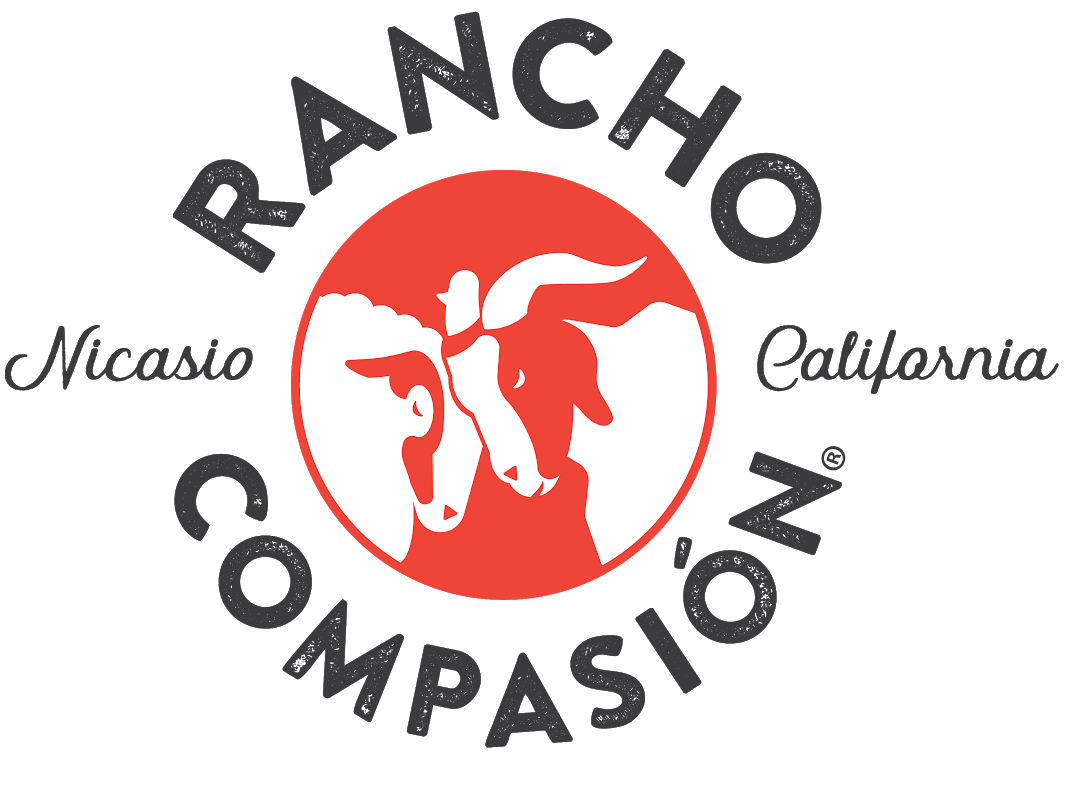the compassion garden
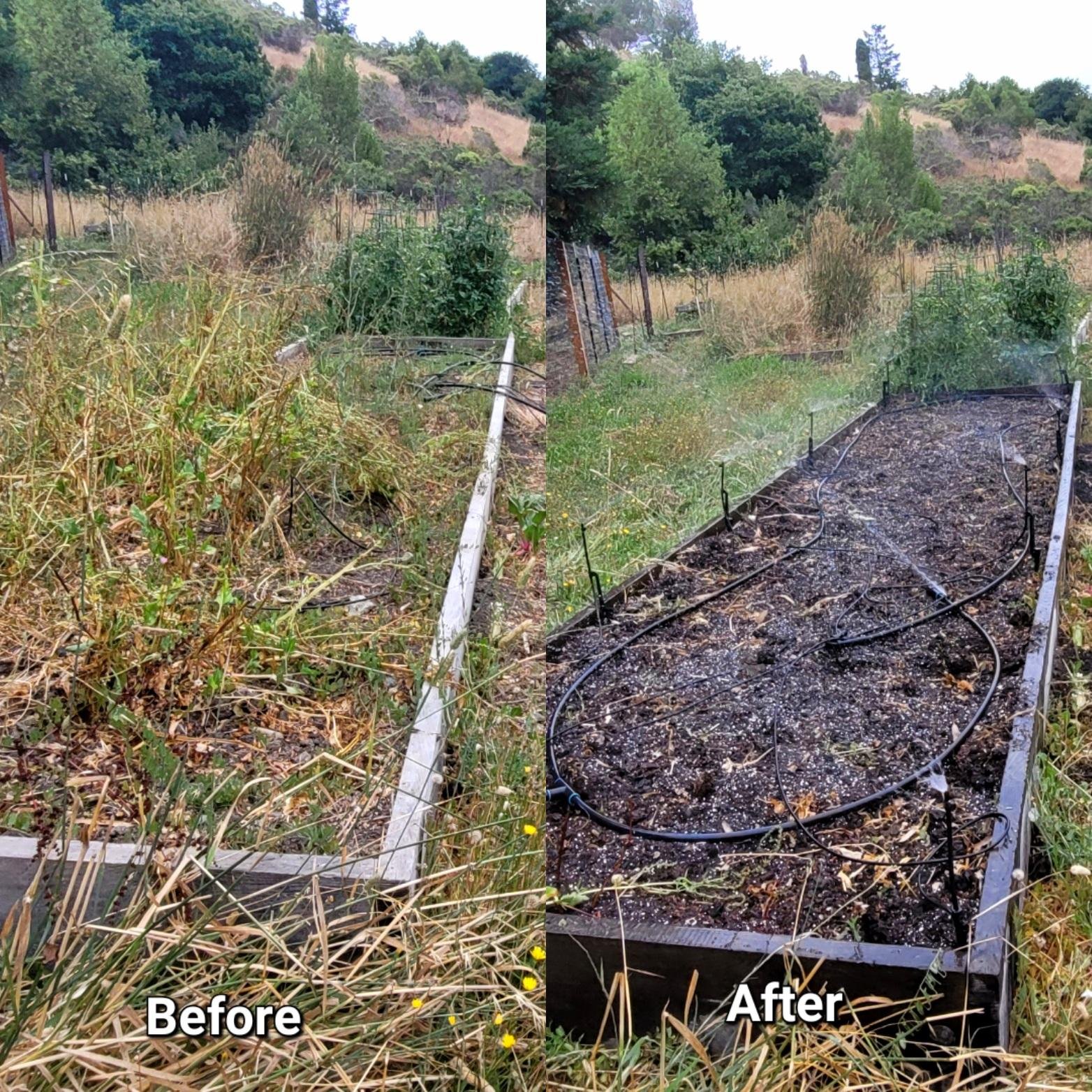
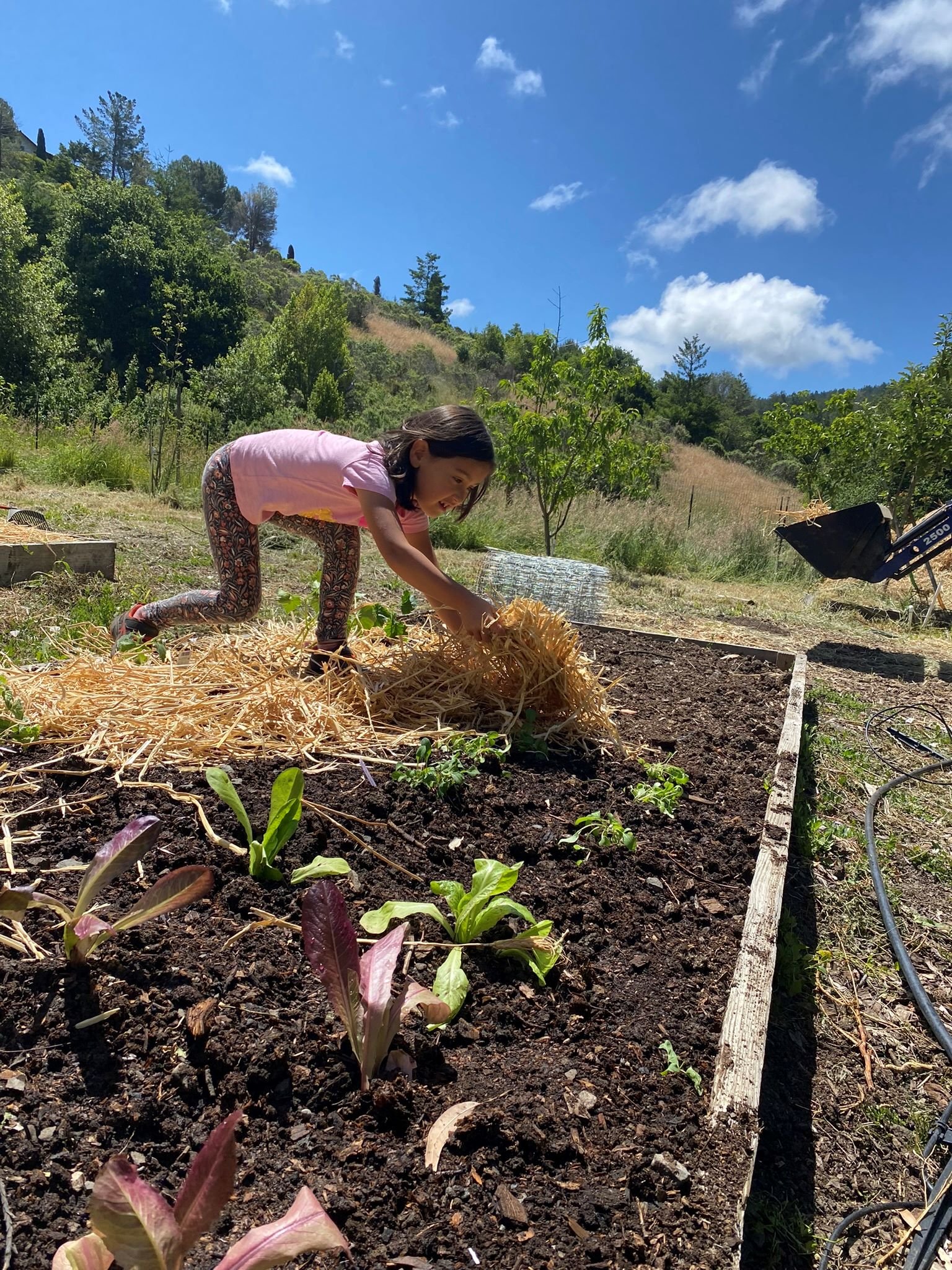
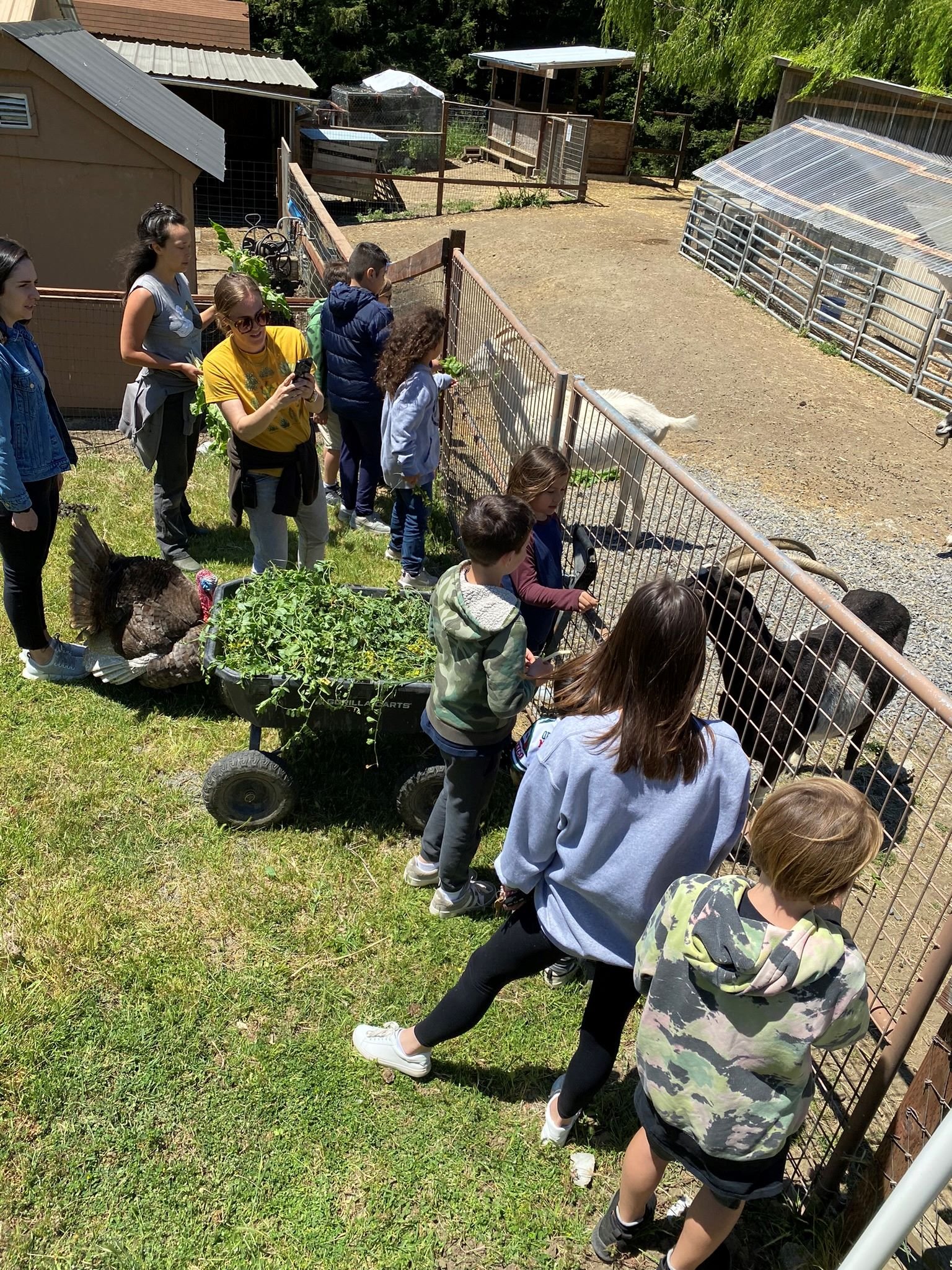
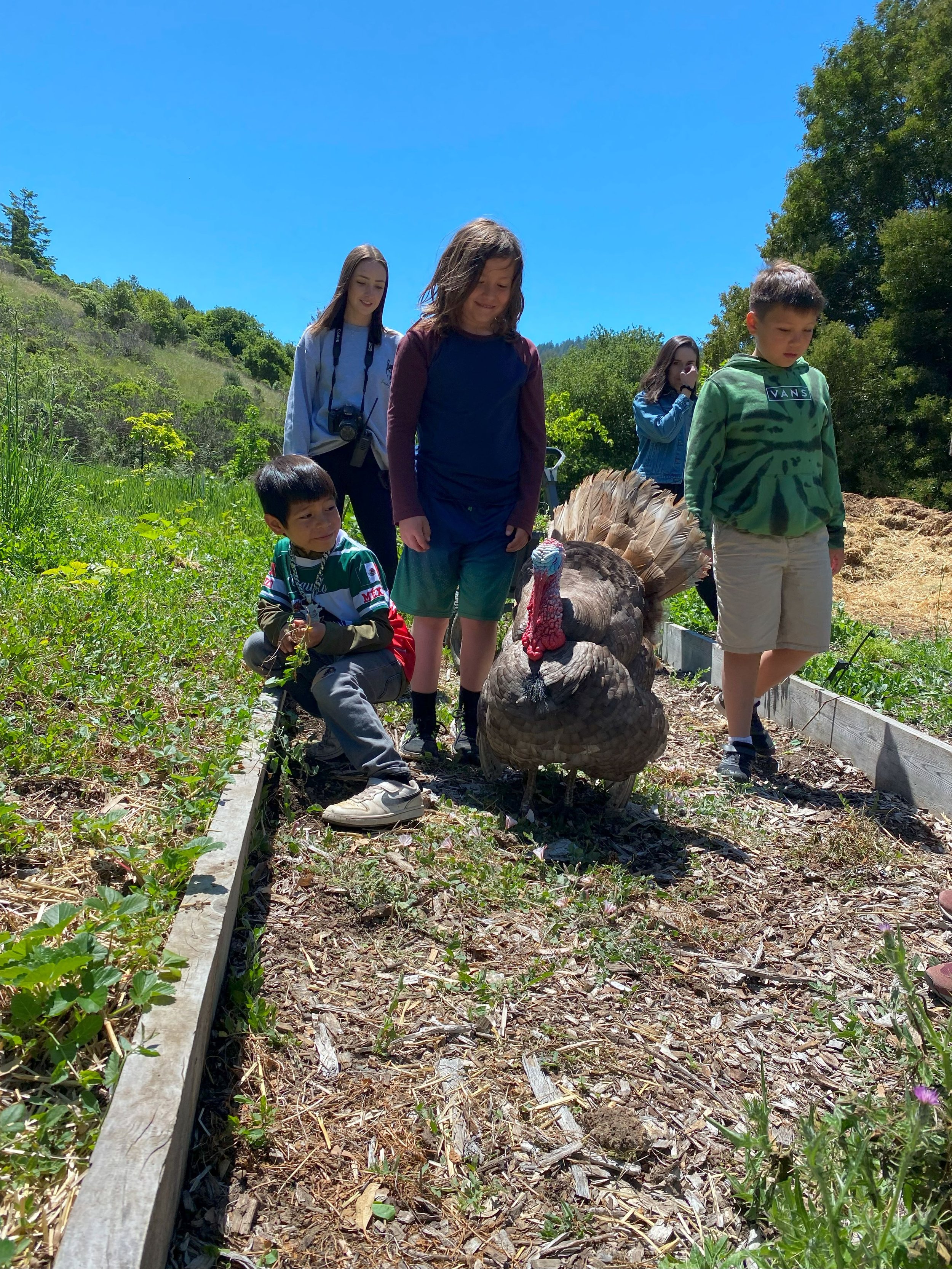
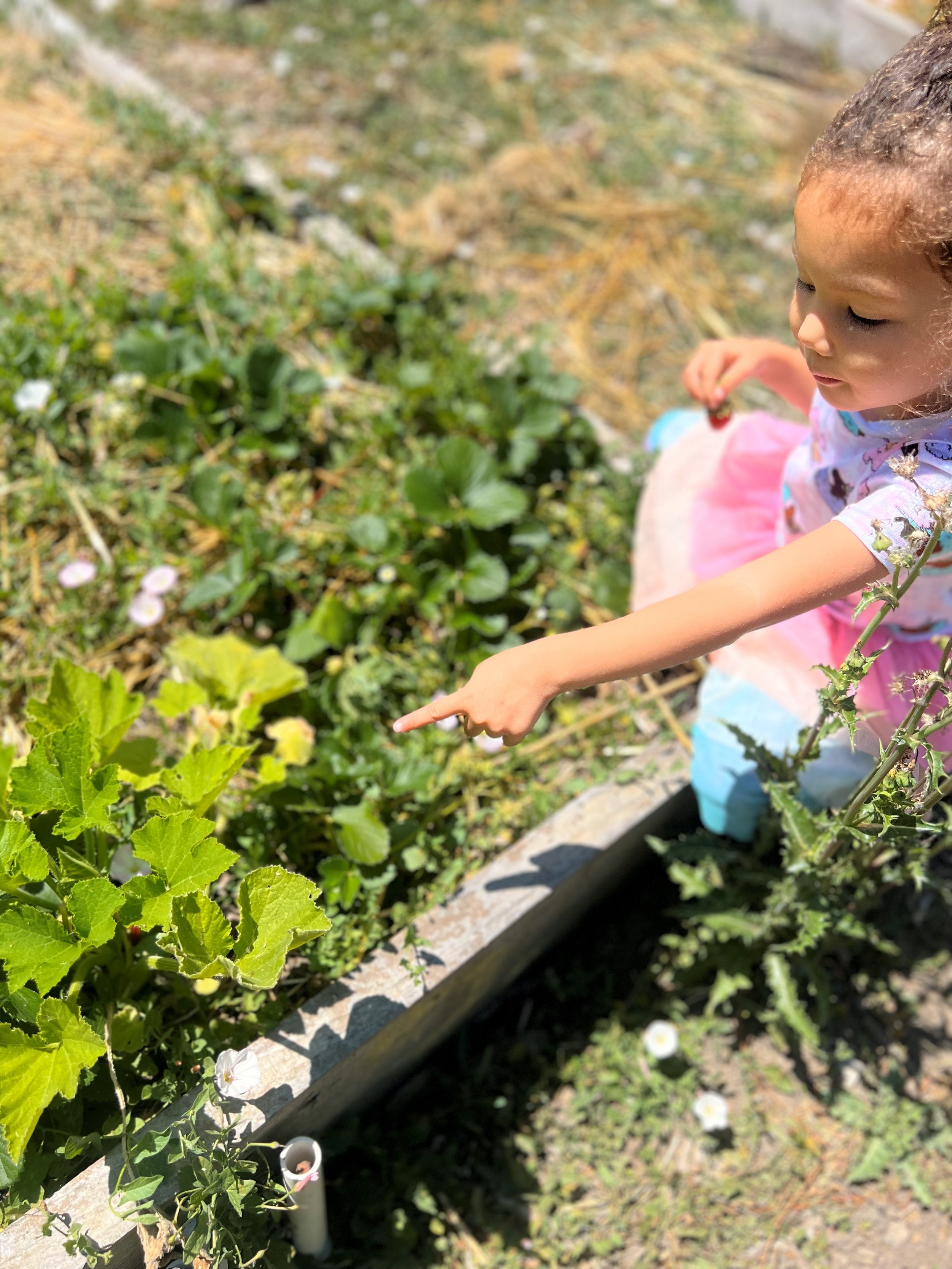
Seeding a Vision
We began 2023 with a vision: to nurture the existing garden on the sanctuary property and turn it into a thriving community space and teaching garden. Ultimately, we wanted to extend our meaning and practice of sanctuary so that it went beyond just the animal sanctuary aspect, and included the garden as a place of safety and wellbeing for visitors, pollinators, and everyone for whom these plants nourish beyond just the property.
Well, that vision has come to fruition! In 2024, we launched our compassion garden, teaching summer camps, after school programs, and workshops in our very own vegetable and flower garden.
In 2025, we can’t wait to begin producing enough food for farm-to-table dinners and donating produce to our community. Interested in helping? Get in touch!
Growing Compassion, Tending to Community
Student Field Trips & Youth Education
Our field trips with students aged 5-18 connect youth to the source of where delicious, nourishing food grows, from soil to harvest. Children are encouraged to come with their awe, endless curiosity, and trepidation—we encourage them to try out something new, whether it’s putting their hands in rich soil for the first time, learning to respect a tiny critter, walking about the property foraging for native edible weeds or willow branches for weaving, or immerse themselves in the sensation of eating a freshly-plucked cherry tomato and basil leaf. With a volunteering component woven in to many field trips, hands-on work such as sowing seeds, pulling weeds, laying mulch, and propagation teaches students that their contributions and teamwork are meaningful. Students can go home with easy recipes under their belt or a plant cutting they can tend to, taking the garden magic back to their families! Restoring our vital connection to Mother Earth is an imperative in today’s world, and we are deeply honored to be able offer that to students from across the Bay Area at no cost.
Classes & Workshops
We will begin to host guest teachers for workshops where community members can learn all about tending to the soil, growing food, composting, foraging, permaculture, native landscapes, and more. All classes will include scholarship and NOTAFLOF (No One Turned Away For Lack Of Funds) options, but ticket prices will support our ability to pay our instructors and keep the garden growing!
Sharing the Abundance
The Compassion Garden is a practice in resource distribution, reparations for land, people, and the other-than-human people, and mutual aid. This abundant land nourishes us, allowing us to nourish others. Our eventual goal is to provide free food to people who don’t have access to fresh produce. We will begin exploring options and collaborations in 2024, once our program gets its legs! We are going to need volunteers to make sure the garden is truly a community hub—so get in touch with us today (info@ranchocompasion.org) if you want to be a part of this nourishing program!
Wishlist
We need new materials in working order that can last us a long time! If you would like to donate materials from your own stash, or purchase new materials from our wishlist, we would be oh-so-grateful! Our current needs are:
Supplies
Garden supplies can be picked up locally at your local ACE Hardware or Friedman’s in Sonoma County. Also, check out our Amazon wishlist.
wheelbarrows (one-, two-, or 4-wheeled dump carts)
mini-shovels and trowels
garden pitchforks
work gloves (non-leather)
zero-g lead-free hoses
picnic tables
wooden tongue depressors for making labels
